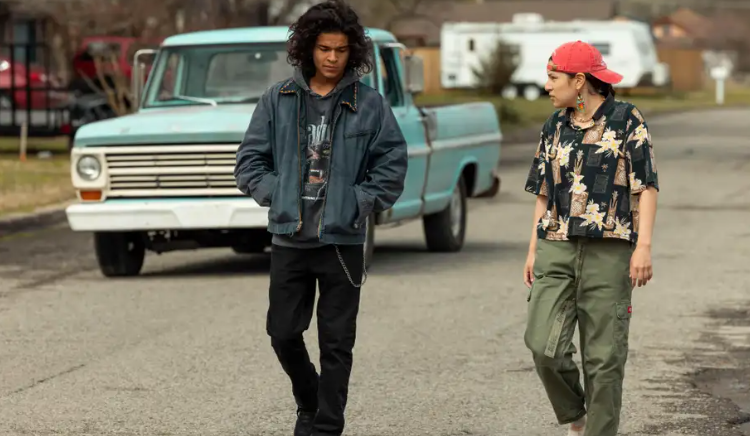It would be a gross understatement to say that Reservation Dogs is unlike anything else on television. This is primarily because the comedy’s tone and subject matter demand to be appreciated on their own terms. Thankfully, as the FX show was created and won multiple awards by Sterlin Harjo and Taika Waititi continues to demonstrate in its second season, the show continues to pave a path for itself.
Following the devastating tornado that struck their reservation the previous time we saw them, the four main characters of the story are shown trying to put their lives back together in this season. We begin with the buddies who are spread out, rather than the close-knit group as the show’s title suggests: Bear (D’Pharaoh Woon-A-Tai) is still in shock as a result of what he perceives to be Elora’s betrayal (Devery Jacobs). Willie (Paulina Alexis) is left wondering if the curse she placed on the prickly newcomer to the reservation backfired because the young, wide-eyed teen chose to leave her friends behind and travel to California with only Jackie (Elva Guerra). Willie is now wondering if the curse she placed on the newcomer has somehow backfired. And, as usual, Cheese (Lane Factor) is along for the ride, providing comic relief in the form of classic, deadpan one-liners whenever there is a lull in the action.
Reservation Dogs’ brilliance lies in its ability to turn really bleak subject matter (generational trauma, painful grief, and systematic inequities) into endearing humor, but not in such a way that these concerns appear to be more acceptable. This is not a show that tries to persuade its viewers or characters that laughter is the key to overcoming life’s challenges or dispelling centuries-old myths. Neither of these things is even hinted at in the show’s plot. Instead, the show reminds us that there is always joy in upending expectations and weaponizing oft-repeated punchlines by interweaving absurdist set pieces like Dallas Goldtooth’s chatty spirit guide William Knifeman (who has a maybe-fake story for every situation Bear finds himself in) or Lil Mike and Funny Bone’s rapping duo Mose and Mekko (now with fewer bikes!).
This holds true for more than just the ensemble cast. In brief, in scenes that sketch out possibly helpful (or perhaps insidiously self-serving), white people, Josh Fadem and Megan Mullally play a driver all too eager to give Elora and Jackie a ride and a divorcée who opens her home to the runaway teens, respectively. The show leaves audiences wondering how much of their own prejudices are at work when confronted with such stereotypical characters in a show that does not center on their worldviews.
Is this a comedy (or a drama?)? Dramedy? About how difficult it may feel to make a life for yourself when doing so appears pointless at best and impossible at worst. Static classifications are inapplicable.) about how difficult it can be to carve out a life for oneself Daniel’s death continues to cast a pall over his friends, who are left wondering what actions they could have taken to help the troubled adolescent more. But it has also inspired them to rethink their lives and chart new paths that, while not completely breaking the cycle of trauma, can at least move them toward a more generative vision of their world. Despite the fact that they may not be able to completely break the cycle of trauma, they can help. Our main four characters continue to struggle with how to move on with their lives in the second season, despite the grief and loss they have experienced. And, rather than offering trite platitudes about how to get there, it confronts the doom head-on.
Reservation Dogs, a much-needed corrective to decades of Native American representation (or erasure) on American television, also accomplishes another feat: it creates comedy gold from a grounded, albeit stylized, vision of life on a reservation. Reservation Dogs are important for many reasons, including this one.
Furthermore, in the context of prestige television, which can often feel deliberately hostile toward episodic programming (dear God, no more claims that “it’s a 10-hour movie”), Reservation Dogs makes the most of its half-hour segments. This is a series that deftly captures a slice of life in a community that has had to make do with crumbs for far too long, whether it’s just following Bear on his first day as a roofer (which doubles as a bottle episode about what a healing kind of modern Native masculinity can look like) or capturing the intergenerational community-building that can happen when faced with a devastating loss (a tender episode on grief with a pitch-perfect Star Wars throwaway).


















































































